Episode 3 Staff
Screenplay:
Ryouhei Takeshita
Storyboard:
Asaka Yokoyama
Episode Direction:
Yasuhira Kido, Ayumu Uwano, Asaka Yokoyama
Chief Animation Director:
Yuuichi Takahashi
Animation Director:
Saori Yanaga, Guonian Wang, Akane Kasasagi, CygamesPictures, Hiroko Seigan
Key Animation:
Noriaki Nihei, Saori Yanaga, Mariko Aoki, Naomi Okita, Hiroshi Tanabe, Shiori Nakasone, Akane Kasasagi, kiki, CygamesPictures, Mirai Yanagino, Shiping Yang, Hiroko Seigan, Aoi Maekawa, Haruto Murata, Chen Zitu, Aito Kawase
Episode 4 Staff
Screenplay:
Oki Murayama
Storyboard and Episode Direction:
Yoshiyuki Shirahata
Chief Animation Director:
Yuuichi Takahashi
Animation Director:
Kou Okazaki, Noriaki Nihei, Guonian Wang, CygamesPictures, Aoi Maekawa, 寧波麦冬映画
Key Animation:
Haruka Umemura, Sanchu, Kou Okazaki, Mai Saeki, Rai, airmonster, PORONG, mixemirai, 楽園, Hitomi Yokota, Chisato Kitamura, Shiwei Animation Design (Tianjin) Co., Ltd., Hang Yin, CygamesPictures, Touma Koyama, Rento Nakamura, Masashi Itou, Aoi Maekawa, Yuuka Kawanami
Always Being Watched
I’m a bit late in writing about The Summer Hikaru Died, but I really did want to find some time to talk about it, as it’s probably one of my favorite shows this season, alongside Takopi’s Original Sin and the developments unfolding in Call of the Night. I especially wanted to talk about my favorite episode of Hikaru so far, which was episode 3, and I figured, why not tag episode 4 along with it too.
Since I haven’t written about this show’s previous episodes, let me first mention that its direction is some of the best I’ve seen in a long time, especially in terms of horror. My experience with horror anime recently hasn’t been great, such as with Housing Complex C. But while this show isn’t the scariest or most gruesome, I find the directing style really compelling. I guess the best way to describe it is as something like a retro horror movie, but with an oddly indie touch.
It’s a strange thing to say, but the direction reminds me of some indie horror games I’ve been playing lately, most of which have given me some of my better recent experiences with horror. The great use of camera angles and obstruction, through literal objects being in front of things or heavy filters like a shot from the top of a security camera, along with the artifacts and similar effects, creates a voyeuristic vibe. The camera comment refers more to episode 2, but the voyeuristic feeling is almost always present, even in episodes 3 and 4. It feels like this secret, this horror Yoshiki is hiding, is not really hidden at all. Hiding the horror can make it even scarier at times. It’s often done for budget reasons or to obscure low-poly models, but seeing that approach applied to anime is interesting. It’s one of the more atmospheric anime I’ve seen in a wild.
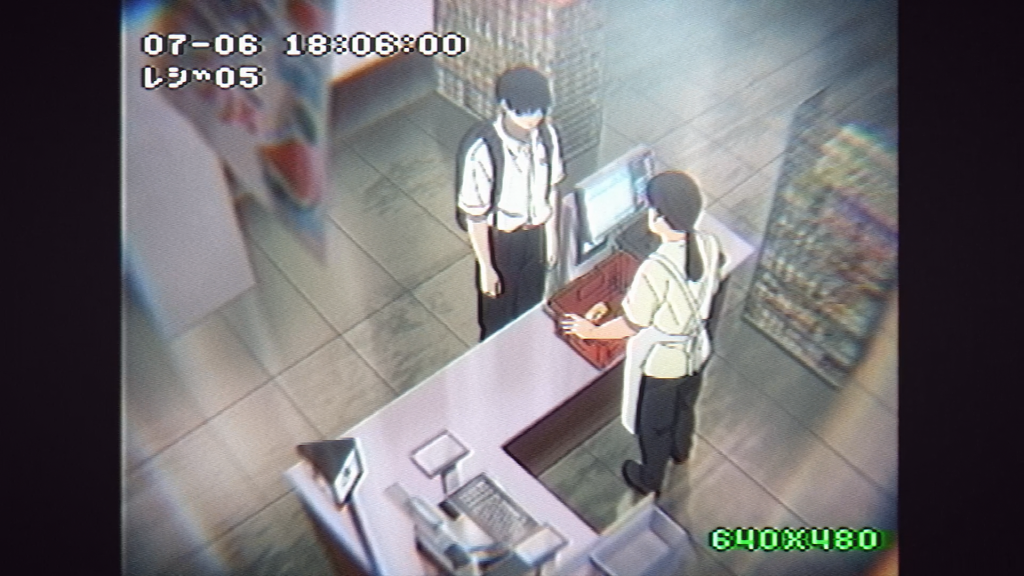
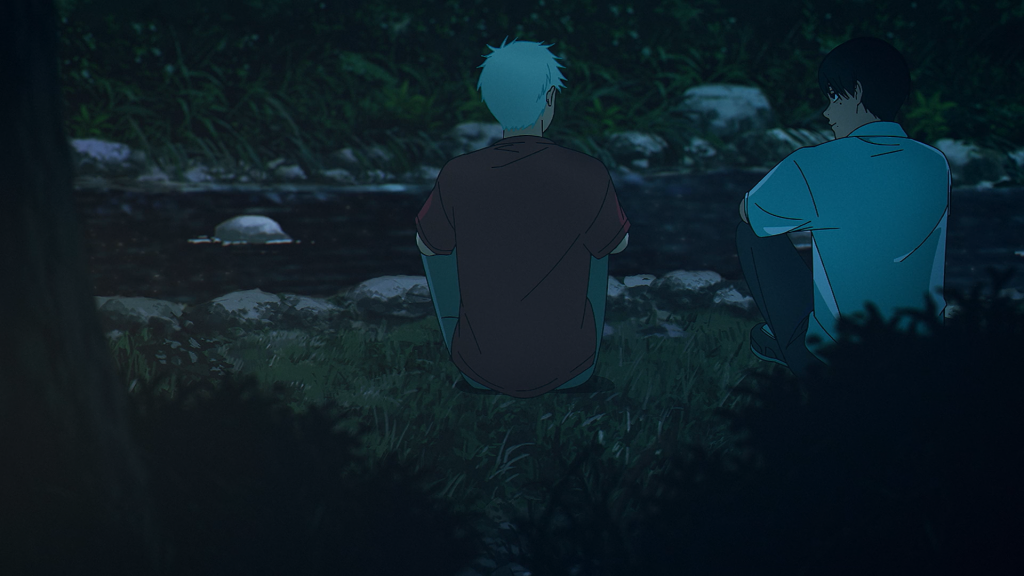
If you’re reading this review, you’ve probably already seen the first few episodes, so I’m not going to recap the whole thing. Yoshiki has known for a long time that Hikaru isn’t really Hikaru, yet he has tried to pretend that this thing, which acts almost like Hikaru, is Hikaru. It’s his best friend, or maybe even someone he loves more than that. But deep down, he knows it’s taboo, that it’s wrong.
That feeling hasn’t gone away. The memory of Rie Kurebayashi confronting him in episode 2 is still fresh in his mind, and he eventually decides to meet up with her. On the surface, it’s about him being afraid of hanging out with a monster or of people finding out about it. But, while the show isn’t being very subtle about it, I think it’s also meant to show how homosexuality might be treated in more rural, closed-minded areas.
It feels like he can’t keep any secrets. Even the old lady noticed something. She seems to understand what Yoshiki is going through. Her husband came back in a way similar to Hikaru, which brings up a lot of questions about her past on its own. She knows more than she’s letting on. In their conversation, she even made a strange comment, saying she was surprised it wasn’t a girl since they’re “mixing.” That stood out to me.
Denial
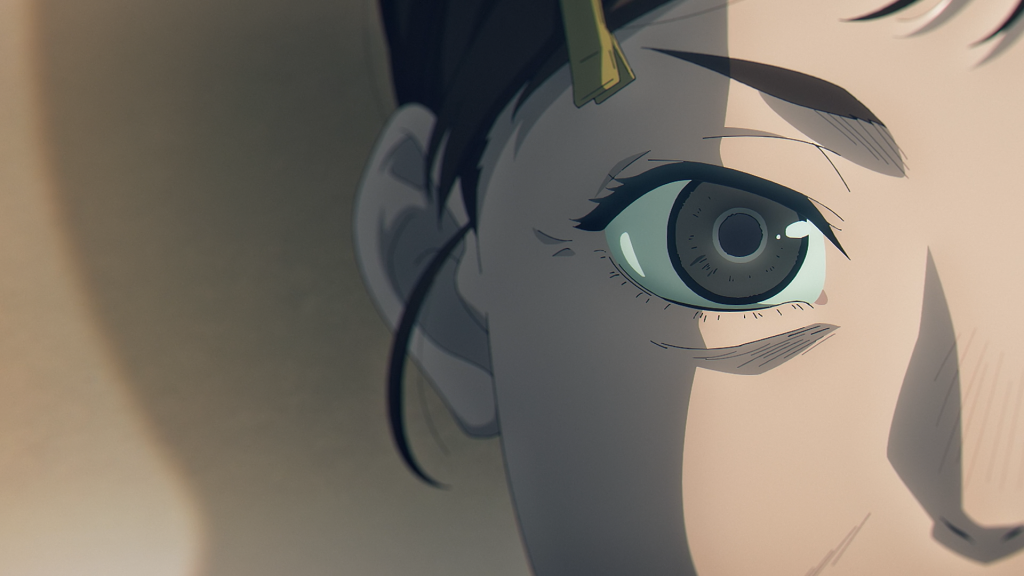
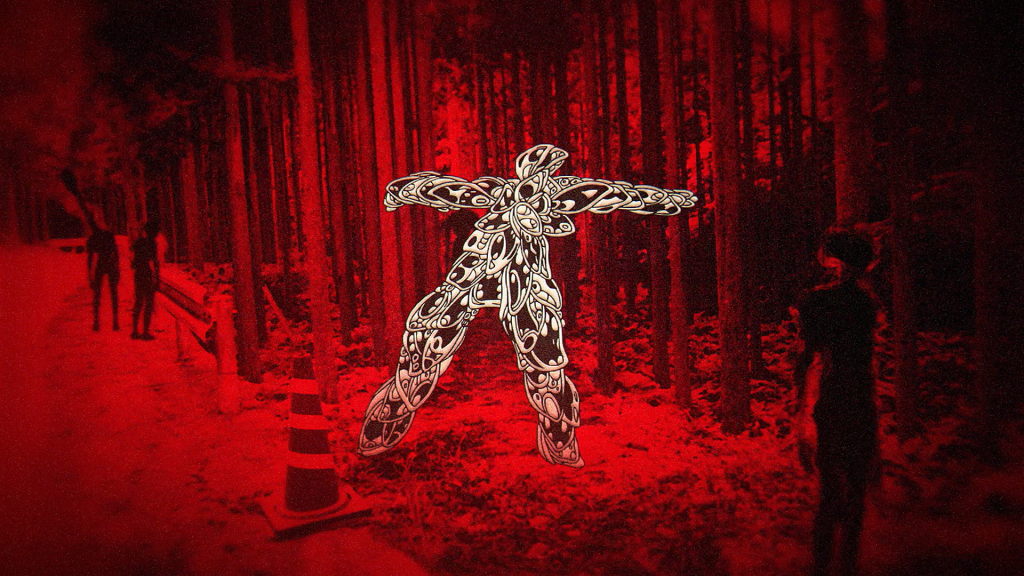
While the story is directly about a monster and the fear surrounding it, it also works as an allegory. It reflects how gay people, or outcasts in general, can be treated as something to fear simply because they’re different or not understood. This is especially true in a rural town like this, where everyone seems to know everyone else. Even in earlier episodes, you can see a nosy cashier bothering Yoshiki. She seems friendly, but she’s really probing and trying to influence his decisions. People also judge Yoshiki’s sister harshly. And there’s a moment in episode 4 that we’ll talk about soon that continues this theme.
Honestly, we still don’t know who this new Hikaru is or why he was wandering around in the mountains. Why was he supposed to stay there? Will he really bring ruin if he comes down to the village, or is it all just superstition? Hikaru’s existence is treated like a distortion that will spread if he descends from the mountain, which, I think, reflects the idea that people with different ideologies can greatly change and affect a rural community that is probably afraid of change. Though, of course, Kurebayashi isn’t homophobic (probably), the use of the supernatural here does seem to symbolize that idea to some extent, even if she is most likely just worried about the threats of actual supernaturals.
Either way, Yoshiki comes out of this conversation even less trusting of “Hikaru,” even avoiding him at school. He’s reflecting on many things, but one of the main thoughts on his mind is Hikaru’s threat of “I don’t wanna kill you” when Yoshiki asked him if he was the real Hikaru. This thing is dangerous. What is Nonuki-sama? What is on the mountains? He starts to want to get away from this distortion that has taken him away from his normal life. However, before this thought can go any further, Hikaru finds him after school.
This encounter, especially with the cold shoulder Yoshiki has been giving him, along with Hikaru knowing that Yoshiki has been speaking to someone he’s never heard of, makes the conversation tense and unpleasant. Eventually, as Hikaru says, “You used to tell me everything,” Yoshiki blurts out, “Used to.” That one phrase hits hard. Hikaru realizes that the real problem is this: Yoshiki will never see him as Hikaru. Even through tears and the pain of wanting to be with Yoshiki, not even sure if those feelings are truly his or remnants of the real Hikaru’s, the mysterious blob-like form starts to emerge from his body and swallows Yoshiki whole.
Yet something in him can’t go through with it. He can’t bring himself to kill, absorb, or whatever this process would do to Yoshiki. So Hikaru apologizes and leaves the room.
While Yoshiki is trapped in Hikaru’s strange slime-like form, he has a flashback of someone who is not Hikaru. We do not get much context on this but it is likely related to Nonuki-sama’s past in some way.
Yoshiki comes to a conclusion: no matter what this Hikaru is, he’ll never be the real Hikaru, and he can’t keep treating him like he is. Ironically, this thought is supported, but the way he approaches it is subverted when his friends Yuki and Asako tell him to make up with Hikaru already. They’ve noticed that Hikaru has recently become much more clingy and doesn’t want to be left alone. This seems to make Yoshiki realize they are right. He is completely different.
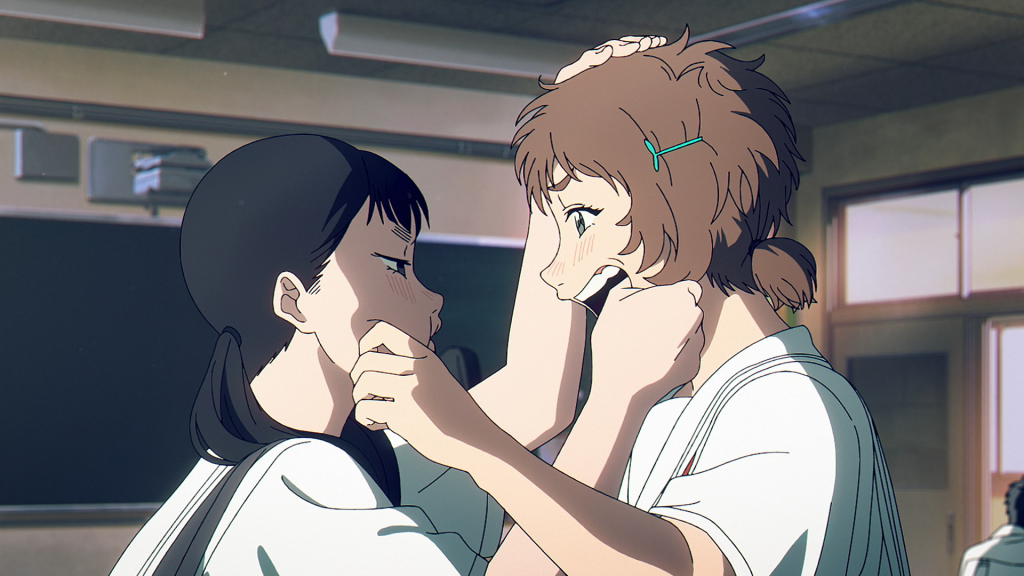
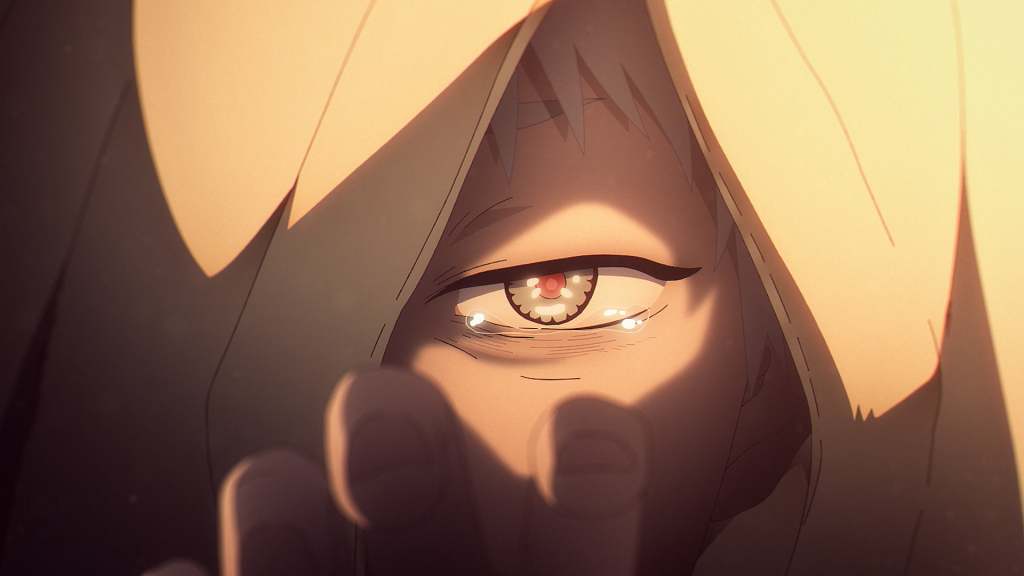
He goes to Hikaru’s house, where Hikaru is wrapped in a blanket, not even looking at Yoshiki directly, clearly ashamed of what he tried to do to him. This is one of my favorite moments in the show so far. It was, in a weird way, very wholesome considering the overall premise. This Hikaru, as Yoshiki puts it, is way more of a brat than the real one. His behavior here is almost childlike. Yoshiki now realizes that just because this isn’t the real Hikaru, it doesn’t mean he can’t spend time with him. He decides to treat him as his own person and offers to be the one to teach this creature, who clearly doesn’t understand humans very well, about human life. The ending theme playing in the background during all of this made the scene even more touching.
I really like the visual of Yoshiki reaching out after saying he wasn’t mad anymore, then backing away after Hikaru reaches out in return, and finally Hikaru pouting like a child. This moment seems to erase Yoshiki’s last fear of Hikaru, for better or for worse. He was scared when he reached out, even if it was deep inside. Yet when he saw how Hikaru had a reaction similar to a child, he seemed to immediately soften and even put a hand up to Hikaru’s face. While this ending is mostly treated as a wholesome moment, the sunflowers dying at the end of the episode does put this into question.
Summer Festival
Episode 4 covers the Summer Festival, which has some interesting lore of its own to share, of course. This is also the episode where we finally get to see Yoshiki’s sister, Kaoru, out of her room and actually speaking. The episode progresses the plot quite a bit, especially in terms of the person hunting Hikaru from the “company” and the village heads, who seem to only know Hikaru as Nonuki-sama. I’m curious where this aspect will go. I haven’t read the Hikaru manga, but I wonder if it’s eventually going to become more action-heavy like Summer Time Render did. If it does, I’m not sure how I would feel about that, per se.
I have no idea where the story is going, and I’m not going to try to predict it. But what I did want to talk about in this episode is, again, the theme of living in a rural place and how suffocating it can be. There’s a lot of judgment against Yoshiki’s whole family because Kaoru doesn’t leave her room and doesn’t want to go to school. Many people judge his family for letting this happen.
In a small town, gossip spreads quickly, and anything outside the norm is not judged kindly. We also see this directly in a flashback with Yoshiki and the actual Hikaru. The heir of a family both of them knew was publicly stated to be “diseased,” but in reality, he’s just gay. Hikaru doesn’t seem to hold any prejudice, but he does come off as distant, only asking if the person is “one of those LGBT people,” which suggests he doesn’t know much about homosexuality because of growing up in such a small town.
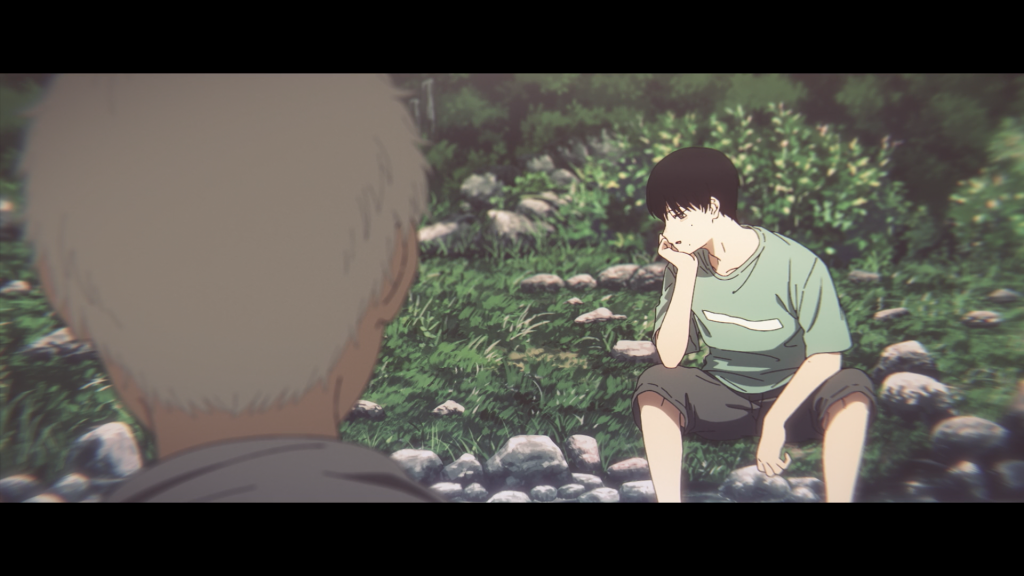
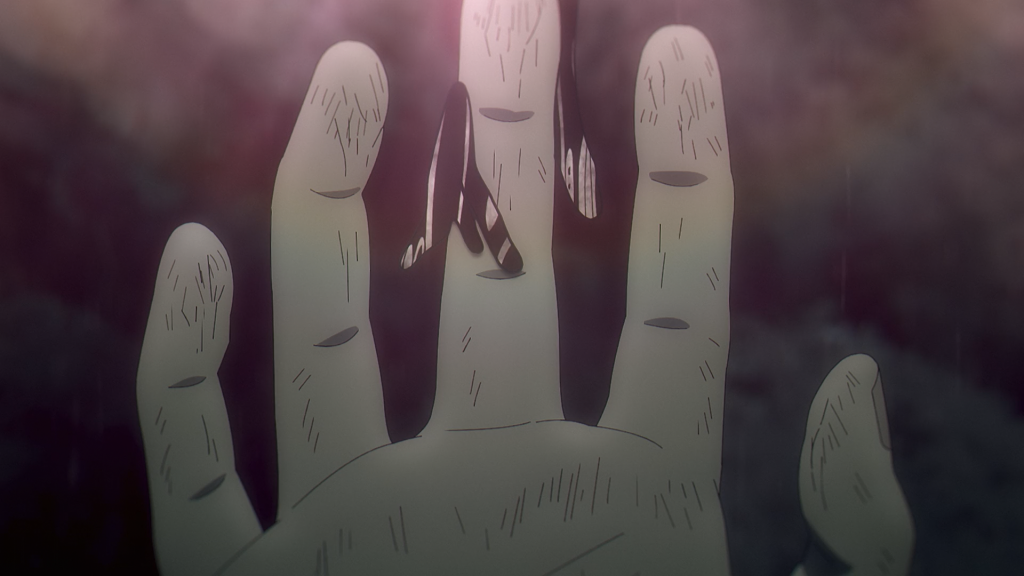
Yoshiki, however, clearly wants out. The constant judgment toward his family, and perhaps toward his own hidden sexuality, makes him want to move to a different city. It’s at this point that Hikaru invites him to his house. Hikaru was definitely one of the only people Yoshiki ever interacted with in this town who didn’t make him feel judged. He likely sees Hikaru as his only real sense of freedom in this suffocating place.
It also raises the question of how much Hikaru actually liked Yoshiki. The original Hikaru, who died, has already been described as less clingy than the fake Hikaru we’ve known since episode 1. Is that the real Hikaru’s true feeling, just unrestrained? At the end of the episode, we see the moment when the real Hikaru died, and his last thoughts were of Yoshiki. This perhaps suggests that he did love Yoshiki in the same way the creature who became him does. However, because of the environment in the town, he may have never fully thought about it or realized how much he wanted to help Yoshiki until he was dying. Still, his love for Yoshiki and his final wish to never leave him seem to have deeply influenced the new Hikaru born from his death, revealing just how much he loved him.

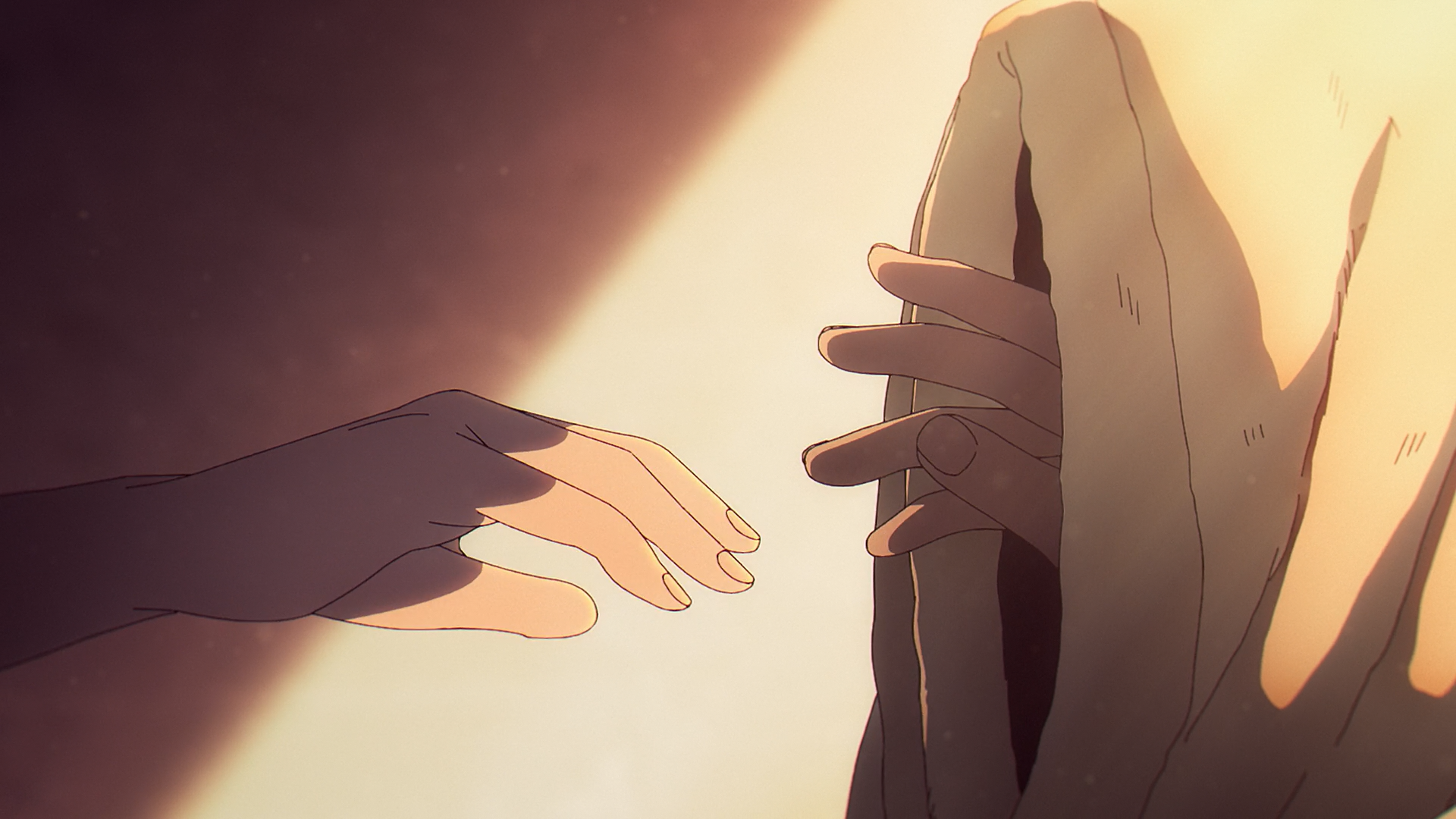
Leave a Reply